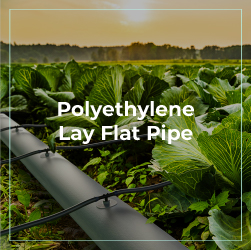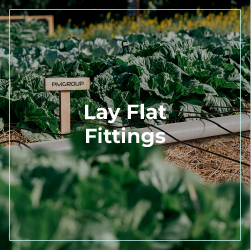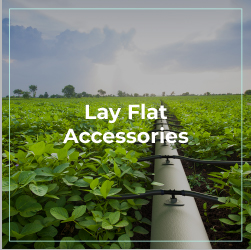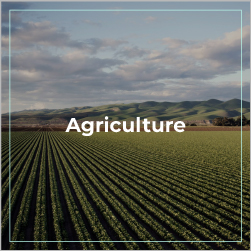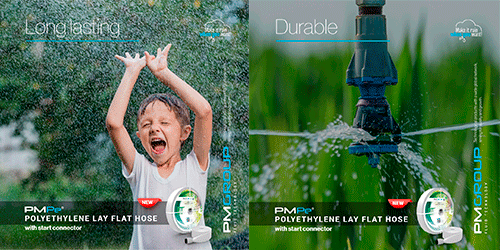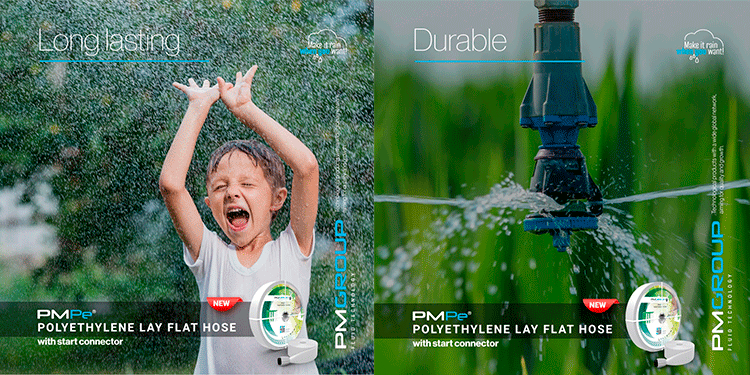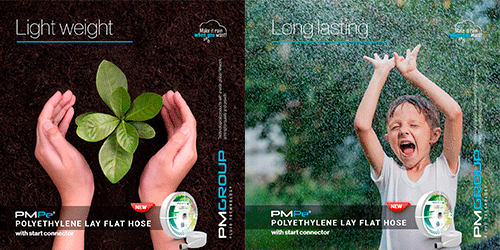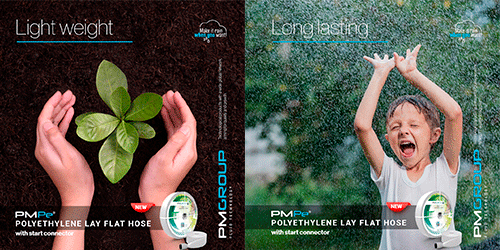Among the various tools and technologies available, layflat pipe have emerged as a vital component in effective irrigation systems. This article delves into the significance of layflat pipes in agriculture, exploring their benefits, applications, and impact on farming practices.
What Are Layflat Pipe ?
Layflat pipes, also known as lay-flat hoses, are flexible, lightweight, and highly durable hoses used primarily for irrigation purposes. They are designed to “lay flat” when not in use, which makes them easy to store and handle. These pipes are typically made from synthetic materials such as PVC (polyvinyl chloride) or polyurethane, which contribute to their flexibility and resistance to various environmental factors.
Layflat pipes are not only beneficial for irrigation but also play a role in addressing water scarcity issues. By ensuring that water is distributed more evenly across fields, these pipes help minimize water wastage and make the most out of available water resources. This efficient use of water is particularly important in regions facing drought or water shortages, where every drop counts. As a result, farmers can achieve better crop growth and conserve valuable water resources simultaneously.
Benefits of Layflat Pipe in Agriculture
-
Ease of Installation and Handling
One of the most significant advantages of layflat pipes is their ease of installation. Unlike rigid pipes,hoses can be quickly deployed across fields and rolled up after use. This flexibility reduces the time and labor required for setting up and dismantling irrigation systems, allowing farmers to focus more on other essential tasks.
Another important aspect of layflat pipes is their contribution to soil health. Proper irrigation helps prevent soil erosion and degradation, which are common problems in agriculture. By providing consistent and controlled water delivery, pipes support the maintenance of soil structure and fertility. This, in turn, promotes healthier crops and reduces the need for excessive soil amendments or fertilizers, leading to more sustainable farming practices.
-
Cost-Effectiveness
Layflat pipes offer a cost-effective solution for irrigation systems. Their lightweight nature reduces transportation costs, and their flexibility allows for easier storage compared to traditional rigid pipes. Additionally, the durability of pipes ensures that they can withstand harsh environmental conditions, leading to lower maintenance and replacement costs.
The ease of customization and adaptability of layflat pipes also enhances their appeal to farmers. These pipes can be easily cut to desired lengths and fitted with various connectors and accessories to suit specific irrigation needs. This flexibility allows farmers to design and implement irrigation systems that are tailored to their unique field layouts and crop requirements, further improving the efficiency and effectiveness of their water management strategies.
-
Efficient Water Distribution
Proper water distribution is crucial for maintaining healthy crops and optimizing water usage. Layflat pipes are designed to provide uniform water flow, ensuring that every part of the field receives adequate irrigation. This efficient distribution helps in conserving water resources and improving crop yields.
Finally, the use of pipes aligns with the broader trend of adopting advanced technologies in agriculture. As farming practices become increasingly sophisticated, incorporating modern tools like pipes helps farmers stay competitive and meet the demands of a growing global population. By integrating these pipes into their irrigation systems, farmers can leverage technology to improve productivity, ensure sustainable resource use, and contribute to the overall advancement of agricultural practices.
-
Durability and Resistance
Layflat pipes are highly versatile and can be used in various irrigation setups, including surface, drip, and sprinkler systems. Their adaptability makes them suitable for different types of crops and soil conditions. Additionally, they can be used for both small-scale and large-scale farming operations.
Pipes are engineered to withstand environmental stressors such as UV rays, extreme temperatures, and chemical exposure. This durability ensures a long service life, even in demanding agricultural environments. Moreover, their resistance to abrasion and punctures adds to their longevity and reliability.
Applications of Layflat Pipe in Agriculture
-
Layflat Pipe and Irrigation Systems
The primary application of layflat pipes is in irrigation systems. They are used to transport water from a source to the fields, facilitating efficient and controlled water application. Farmers can use pipes to set up temporary or permanent irrigation systems, depending on their needs.
-
Layflat Pipe and Water Transfer and Distribution
Beyond irrigation, layflat pipes are used for transferring and distributing water in various agricultural operations. This includes transferring water from wells, reservoirs, or rainwater collection systems to different parts of the farm.
-
Layflat Pipe and Pumping Systems
Layflat pipes are often used in conjunction with pumping systems to convey water from pumps to irrigation areas. Their ability to handle high flow rates and pressures makes them ideal for use in various pumping applications.
Layflat pipes have become an indispensable tool in modern agriculture, offering numerous benefits such as ease of installation, cost-effectiveness, efficient water distribution, versatility, and durability. As agricultural practices continue to evolve and the demand for efficient water management grows, pipes will remain a key component in achieving sustainable and productive farming. Investing in high-quality pipes can significantly enhance irrigation efficiency, leading to healthier crops and improved farm profitability.

